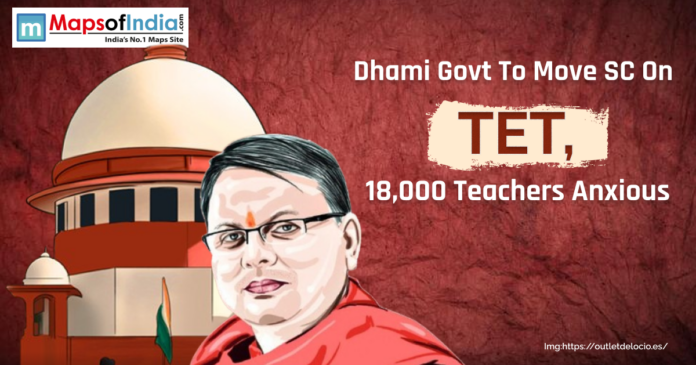The government of Uttarakhand, through its Chief Minister, Pushkar Singh Dhami, has resolved to submit a review petition to the Supreme Court challenging the new Teacher Eligibility Test (TET) requirement that now renders passing the Teacher Eligibility Test (TET) mandatory for all in-service basic teachers. The action comes against the backdrop of mounting anxiety of about 18,000 teachers in the state whose appointments are pending the TET requirement, but are currently unsure of their employment stability and opportunities.
In a case in Maharashtra, a recent Supreme Court decision required all primary school (classes one to eight) teachers in schools not classified as minorities to pass the TET within two years or lose their jobs. In the case of in-service teachers, such failure to clear may also frustrate any promotion in future. This requirement is only waived in relation to those who have less than five years to retirement. The decision has generated a lot of anxiety in those teachers whose services have been in place before the TET period, and the educators in Uttarakhand are not an exception.
Uttarakhand has approximately 18,000 non-credentialed basic teachers at present. They had been regularized before the 2011/2013 TET regulations, or had been assimilated out of jobs such as Shiksha Mitra (education assistant) into basic teacher jobs. Due to the order of the Supreme Court, most of these educators are now facing the threat of being sacked or even failing to get promotions unless they comply with the new demands.
Although the TET mandate was not the point of interest at first, the state cabinet met, and with the teacher groups having been heard, they voted unanimously to file a review petition. The case was brought before an Education Minister, Dhan Singh Rawat, who contested that teachers were in a confused and fearful state. The move by the cabinet indicates the desperation of the state to shield its long-serving teachers against any sudden shock.
The Uttarakhand government is now in need of legal relief and clarification, with the hope that the Supreme Court review will grant an exemption to the teachers who were in place before the institutionalization of TET. The petition will probably cover the issue of whether the TET condition should be retroactive and the question of how to strike a balance between the enforcement and upholding of the employment rights.
The next few weeks are vital to the 18,000 teachers who were affected. The success or failure of the petition will give them the ability to maintain their jobs, get a promotion or lose them in case they fail to pass the exam before the scheduled time. The push by the state government is seen to be a sign that it wants to protect its teachers in the backlash of the larger judicial decision, although the overall result is unclear.










